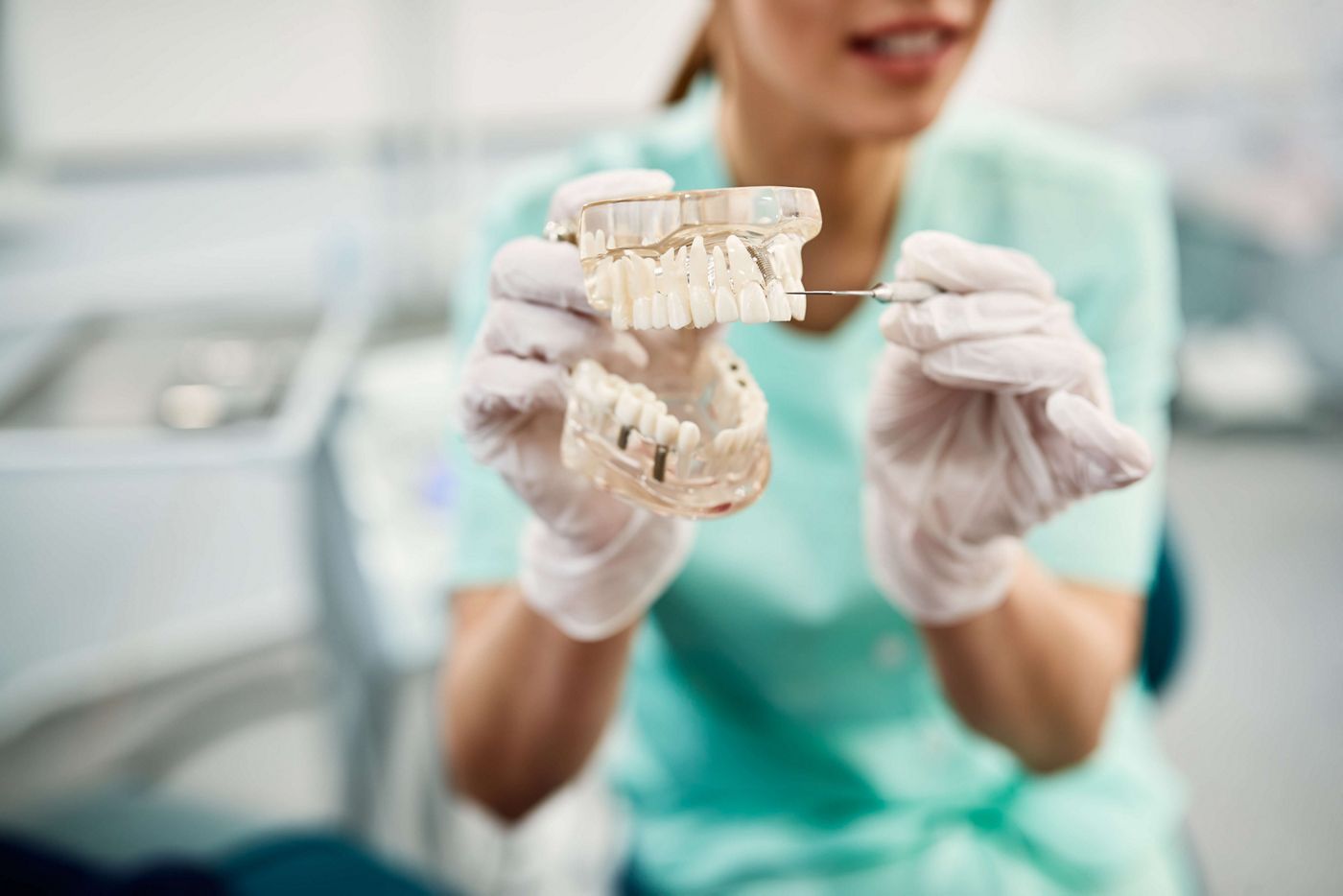How successful are teeth implants in the UK?
Teeth implants in the UK are a solution for missing teeth, offering a blend of durability, functionality, and aesthetic appeal.
This comprehensive guide delves into their success rates, process, and what patients can expect, providing a better understanding for those considering this dental procedure.

What are teeth implants?
Teeth implants (or otherwise known as dental implants) are a revolutionary dental technology designed to replace missing teeth. Unlike dentures or bridges, they are anchored directly into the jawbone, providing a stable and long-lasting solution.
Generally, candidates for teeth implants should have healthy gums and adequate bone density to support the implant. The decision for implants is often made in consultation with a dentist or oral surgeon after a thorough examination of the individual's oral health and specific circumstances.
The process of getting teeth implants in the UK
The journey to getting teeth implants involves several stages, which include consultation, implantation and recovery processes. Getting dental implants usually involves these core steps:
Evaluation: A dentist assesses your jaw and oral health through X-rays and exams.
Planning: A personalized treatment plan is made based on your needs.
Implant placement: The chosen implant material, like titanium, is surgically inserted into your jawbone.
Healing: Over a few months, the implant bonds with the bone.
Crown placement: An abutment is fixed to the implant to connect the artificial tooth. A crown, made to match your natural teeth, is placed on the abutment.
Healing and check-ups: You'll heal over time and usually have regular check-ups to ensure that everything is going well.

Success rates of teeth implants in the UK
Teeth implants in the UK have an impressive success rate, typically ranging between 95% to 98%. This high rate of success can be attributed to advanced surgical techniques, quality materials used in implants, and the comprehensive pre-surgical planning that dental professionals undertake.
Regular follow-up care and maintenance further contribute to the longevity and effectiveness of these dental solutions. Despite these high success rates, it's important for patients to have realistic expectations and understand that, as with any medical procedure, there are risks and potential complications involved.
Factors influencing the success of teeth implants
Several factors can affect the outcome of the dental implant procedure, which include:
Patient's oral health.
The skill of the dental surgeon.
Materials used in dental implants.
Post-operative care.
Patient´s bone density.
Lifestyle choices, like smoking.
If you have concerns about any of the risk factors, you can discuss these with your dentist during the initial consultation.
How long do dental implants last in UK patients?
Teeth implants in the UK are known for their longevity, often lasting 10 years or more with proper care. Their durability may be attributed to the high-quality materials used and the integration of the implant with the jawbone, a process known as osseointegration.
To maximize their lifespan, patients are advised to maintain excellent oral hygiene, attend regular dental check-ups, and avoid habits like smoking, which can negatively impact the health of the implants. Additionally, protecting the implants from excessive force or trauma, such as from teeth grinding, is crucial.
With these measures, dental implants can serve as a long-term, and in many cases, a lifetime solution for missing teeth.
How to make tooth implants last longer
To extend the life of dental implants, it's recommended to:
Practice good oral hygiene, including regular brushing and flossing.
Attend regular dental check-ups and cleanings to monitor the health of the implants.
Avoid hard and sticky foods until healing is complete.
Quitting smoking if this is something part of the current lifestyle.
Use a soft-bristled toothbrush and non-abrasive toothpaste to protect the implant surface.
For those with bruxism (teeth grinding), a night guard may be advised to help reduce stress on the implants.
These practices collectively contribute to the long-term success and durability of dental implants.

Are dental implants painful?
Dental implant surgery is generally low in pain due to the use of local anaesthesia during the process. Post-surgery discomfort is typically mild and can be effectively managed with prescribed or over-the-counter pain medication. Patients often find the experience less discomforting than anticipated.
Proper aftercare, including rest and ice application, further aids in reducing any post-operative pain and swelling. Regular communication with the dentist about pain management may also create a more comfortable recovery process.
Managing pain and discomfort post-procedure
Post-operative care is key to a comfortable recovery from dental implant surgery. Emphasis should be placed on the importance of following the dentist's instructions, such as applying ice packs, eating soft foods, and maintaining oral hygiene.
Additionally, tips for minimizing swelling, avoiding strenuous activities, and ensuring a smooth healing process will be provided.
Comparing teeth implants with other options
Teeth implants often provide a permanent solution, unlike removable dentures, and are more protective of oral health compared to bridges. They offer stability and prevent jawbone deterioration, a common issue with dentures and bridges.
While dentures are less invasive and more cost-effective, they may require more maintenance and can lead to bone loss over time. Bridges, on the other hand, rely on adjacent teeth for support, potentially straining these teeth. Implants, however, do not affect neighbouring teeth and help maintain jawbone integrity. They are typically more expensive upfront but can be more cost-effective in the long run due to their durability and minimal impact on surrounding teeth.
This comparison aims to provide a better understanding of each option's pros and cons, assisting patients in making an informed decision based on their specific dental needs and circumstances.
Teeth implants vs. dentures
Teeth implants and dentures serve similar purposes but differ significantly in terms of comfort, maintenance, and impact on oral health. Implants are known for their stability and ability to preserve jawbone integrity, whereas dentures are less invasive and more cost-effective but may require more maintenance and can lead to bone loss over time.
Teeth implants vs. bridges
When comparing teeth implants to bridges, key considerations include the procedure's invasiveness, longevity, and impact on surrounding teeth. Dental bridges are often less expensive and require a shorter treatment time but involve altering adjacent healthy teeth. In contrast, implants offer a more permanent solution without affecting neighbouring teeth but come with a higher cost and usually a longer treatment duration.
What patients wish they knew before getting teeth implants
Patients often wish they knew more about the recovery time, the importance of choosing an experienced dental surgeon, and the need for good oral hygiene post-surgery. Many express that understanding the full extent of the procedure, including the potential for temporary discomfort and the importance of following post-operative care instructions, would have better prepared them for the experience.
Additionally, insights about the long-term benefits, such as improved oral health and the confidence boost from having a natural-looking smile, are commonly highlighted.